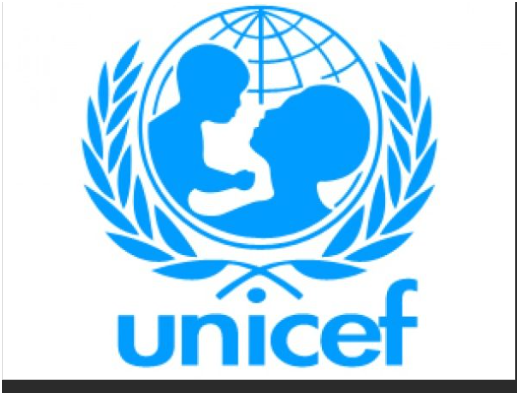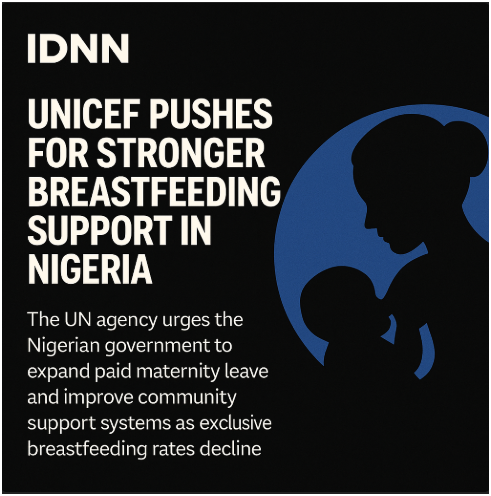UNICEF, FEDERAL GOVT PUSH FOR STRONGER BREASTFEEDING SUPPORT SYSTEMS IN NIGERIA
By: IDNN Health Desk
ABUJA / BIRNIN KEBBI — The United Nations Children’s Fund (UNICEF) and the Federal Government of Nigeria are urging national and state-level action to create stronger breastfeeding support systems, amid fresh data showing stagnating exclusive breastfeeding rates and inadequate maternal protections across most of the country.
Speaking at the launch of World Breastfeeding Week in Ambursa, Kebbi State, UNICEF officials and government partners emphasized the theme:
“Prioritise Breastfeeding: Create Sustainable Support Systems.”
“Breastfeeding is not just food — it’s a newborn’s first vaccine,”
said Nemat Hajeebhoy, UNICEF Nigeria’s Chief of Nutrition.
“Over 90% of mothers breastfeed, yet only 29% exclusively do so in the first six months. That gap must close.”

The Numbers Behind the Crisis
New findings from the 2023–2024 National Demographic and Health Survey paint a worrying picture:
-
Early initiation (within first hour of birth) has dropped from 42% in 2018 to 36% in 2023
-
Exclusive breastfeeding (0–6 months) stagnates at 29%
-
Only 23% of babies are breastfed for the recommended two years
-
Just 12 of Nigeria’s 36 states (plus the FCT) offer 6-month paid maternity leave
“This isn’t just a health issue — it’s a policy failure,” said UNICEF’s Wafaa Abdelatef.
“Breastfeeding improves child survival, prevents malnutrition, and even boosts IQ.”

08112935565, 08161558757
Mothers Call for Action — And Get Support in Kebbi
In Kebbi State, the initiative has drawn praise after Governor Nasir Idris approved a 6-month maternity leave for civil servants. His wife, Nafisa Nasir-Idris, backed the campaign during a grassroots event where 20 breastfeeding mothers received ₦10,000 and support packages, including rice and baby clothes.
“Breastfeeding builds intellect, health, and family bonds,” she said.
“We must back our mothers with policy and support.”
State health and women affairs officials reiterated Kebbi’s commitment to fighting malnutrition and promoting maternal health, thanking partners for counterpart funding and nutrition aid.

What UNICEF and FG Are Demanding
As part of the broader Nutrition 774 Initiative, UNICEF and the National Primary Health Care Development Agency (NPHCDA) are advocating:
-
Full 6-month maternity leave nationwide
-
Training for 100,000 community health workers
-
Mass breastfeeding education campaigns
-
Workplace support infrastructure for nursing mothers
-
Integration of breastfeeding into health insurance and child welfare programmes
“This is more than a nice thing to do,” said Hajeebhoy.
“It’s a survival strategy for millions of Nigerian children.”
Call to Government, Employers, and Society
UNICEF’s final charge is aimed at every stakeholder — not just the health sector:
“Every workplace, every household, every clinic must become part of the breastfeeding ecosystem. It’s time to create that support system.”
The week-long campaign will run nationwide with activations in health centres, traditional councils, and ministries, hoping to reignite Nigeria’s commitment to child survival through breastfeeding.
This is IDNN. Independent. Digital. Uncompromising.
